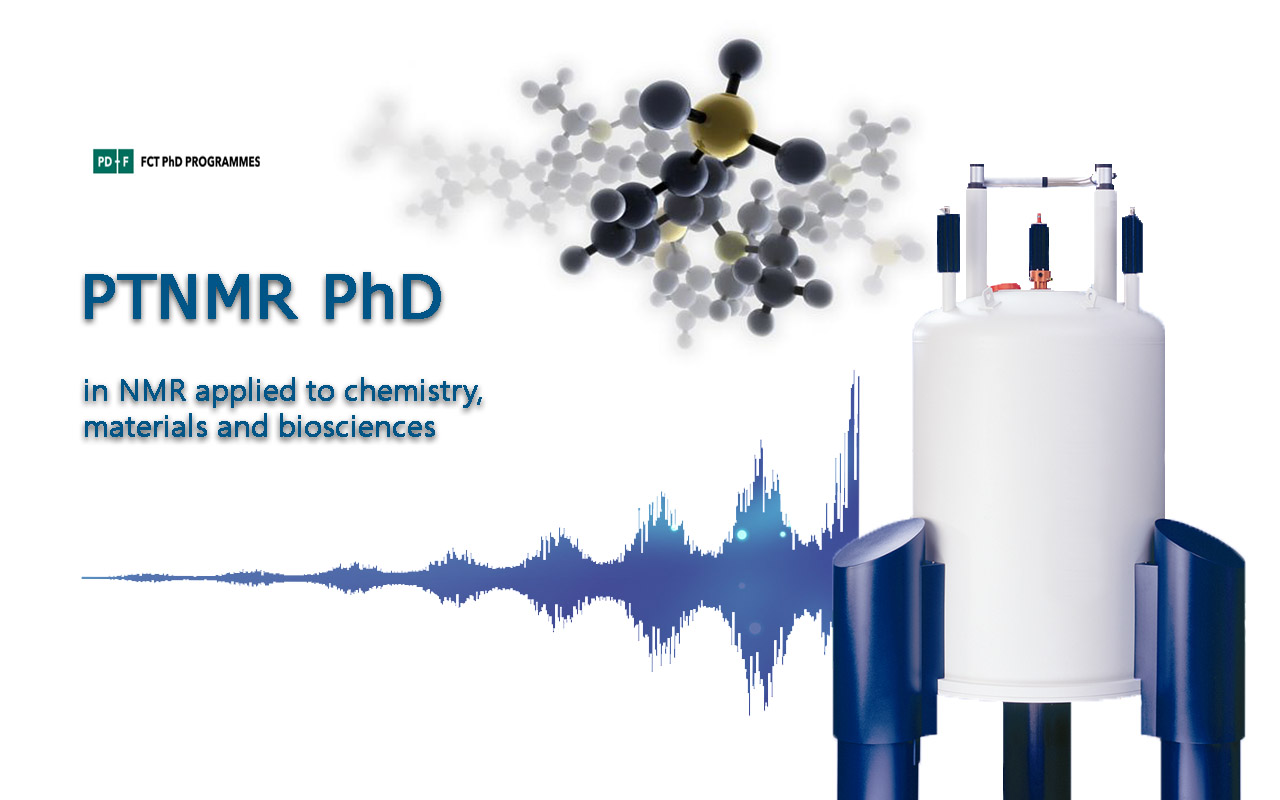Curricular Structure
The PTNMR PhD program recognizes individual interests and requirements in the context of a PhD. After a core training period designed to provide a broad scientific background in NMR theory, train skills and promotion of entrepreneurship, the students will proceed with their scientific project in one of the partner institutions awarding the degrees: FCT-UNL (Chemistry), ITQB-UNL (Molecular Biosciences), IST-UL (Chemistry and Physics), UC (Chemistry), UA (Chemistry), UBI (Biomedicine) and UP (Biomedical Sciences).
The program totals 240 credits (ECTS); most (210 ECTS) correspond to the PhD thesis and the remaining 30 ECTS (mandatory to all students) correspond to curricular units, distributed in five work packages comprising lectures, exercises (individual, group), peer/instructor feedback and student presentations, corresponding to two weeks of student work.
Five work packages (each 6 ECTS) structured in first year are:
1) from fundamentals to advanced NMR theory (6 ECTS);
2) elucidating biomacromolecular structure and function (6 ECTS);
3) NMR in Materials Science and related techniques (6 ECTS);
4) Small Molecules, drug discovery and NMR in Industry (6 ECTS);
5) Frontiers in NMR (6 ECTS).
The 2nd–4th years will be dedicated to the preparation of the dissertation, developed in one of the focus areas, and will involve at least two PTNMR nodes and an international partner of the associated institutions.

